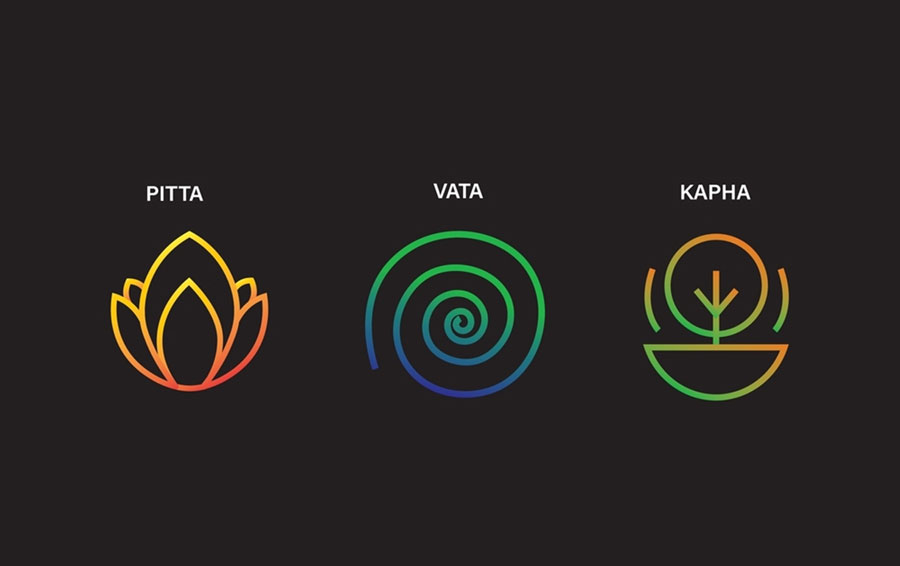
In the world of Ayurveda and Hinduism, understanding what is Dosha forms the cornerstone of holistic wellness and spiritual balance. Dosha, derived from the Sanskrit word "dosa," refers to the inherent energies or constitutions that govern various aspects of our physical, mental, and emotional well-being. In this article, we search into the difficulties of Dosha, exploring its significance, types, and implications in Hindu philosophy and Ayurvedic medicine.
Dosha is an integral concept in Hinduism, rooted in the ancient scriptures and philosophical texts. It is closely associated with the Ayurvedic tradition, which views health as a harmonious balance between the body, mind, and spirit. According to Ayurveda, each individual possesses a unique constitution comprising three primary Doshas: Vata, Pitta, and Kapha.
Vata Dosha: Vata represents the energy of movement and is associated with the elements of air and space. It governs bodily functions such as circulation, respiration, and elimination. When in balance, Vata promotes creativity, vitality, and flexibility. However, an excess of Vata can lead to anxiety, dryness, and erratic behavior.
Pitta Dosha: Pitta embodies the energy of transformation and is linked to the elements of fire and water. It regulates digestion, metabolism, and hormonal balance. A balanced Pitta fosters intelligence, courage, and ambition. Yet, an aggravated Pitta can manifest as irritability, inflammation, and digestive disorders.
Kapha Dosha: Kapha symbolizes the energy of stability and is characterized by the elements of earth and water. It governs strength, immunity, and lubrication within the body. When in equilibrium, Kapha cultivates calmness, compassion, and endurance. However, excessive Kapha can lead to lethargy, weight gain, and congestion.
In addition to the three primary Doshas, Ayurveda recognizes three subtle energies known as Prana, Tejas and Ojas. These energies play a vital role in maintaining overall well-being and vitality:
Prana: Represents the life force or vital energy that governs respiration, circulation, and sensory perception.
Tejas: Signifies the radiant energy responsible for metabolism, digestion, and cellular transformation.
Ojas: Embodies the essence of immunity, vitality, and spiritual strength, providing protection against disease and promoting longevity.
In Ayurveda, the balance of Doshas is crucial for maintaining optimal health and preventing disease. Ayurvedic practitioners assess an individual's Dosha constitution through various diagnostic methods, including pulse reading, tongue examination, and physical assessment. Based on this assessment, personalized treatment plans are devised to restore Dosha balance through dietary modifications, lifestyle changes, herbal remedies, and healing practices.

Ayurvedic yoga practices are tailored to balance specific Doshas and promote overall well-being. These include:
Vata Dosha Yoga: Emphasizes grounding, stability, and relaxation through gentle, nurturing poses and deep breathing techniques.
Pitta Yoga: Focuses on cooling, soothing, and calming postures to ease excess heat and inflammation in the body and mind.
Kapha Dosha Yoga: Incorporates dynamic, refreshing movements to stimulate circulation, metabolism, and energy flow, combating lethargy and stagnation.
understanding what is Dosha is paramount for achieving holistic wellness and spiritual harmony in Hinduism and Ayurveda. By recognizing the influence of Vata, Pitta and Kapha energies, individuals can embark on a journey of self-discovery, cultivating Dosha balance through mindful living, nourishing practices, and personalized Ayurvedic care.
1. Can Dosha imbalance lead to illness?
Yes, an imbalance of Doshas can disrupt the body's natural equilibrium, leading to various health issues and diseases. Ayurveda aims to restore Dosha balance to promote optimal health and vitality.
2. How can I determine my Dosha constitution?
Ayurvedic practitioners assess Dosha constitution through comprehensive evaluations, including physical examination, lifestyle assessment, and pulse diagnosis.
3. Are there specific foods that balance Doshas?
Yes, Ayurveda recommends dietary adjustments tailored to individual Dosha constitutions. For example, Vata-balancing foods are warm, nourishing, and grounding, while Pitta-balancing foods are cooling, hydrating, and soothing.
4. Can yoga help balance Doshas?
Yes, yoga practices are an integral part of Ayurvedic therapy and can be tailored to balance specific Doshas. Practicing Dosha-specific yoga sequences can promote harmony, vitality, and well-being.
5. How often should I assess my Dosha balance?
It is advisable to periodically reassess Dosha balance, especially during seasonal transitions or significant life changes. Regular self-awareness and Ayurvedic consultations can help maintain Dosha equilibrium and prevent imbalances from occurring.
For more Interesting topics follow us on Instagram
Author :